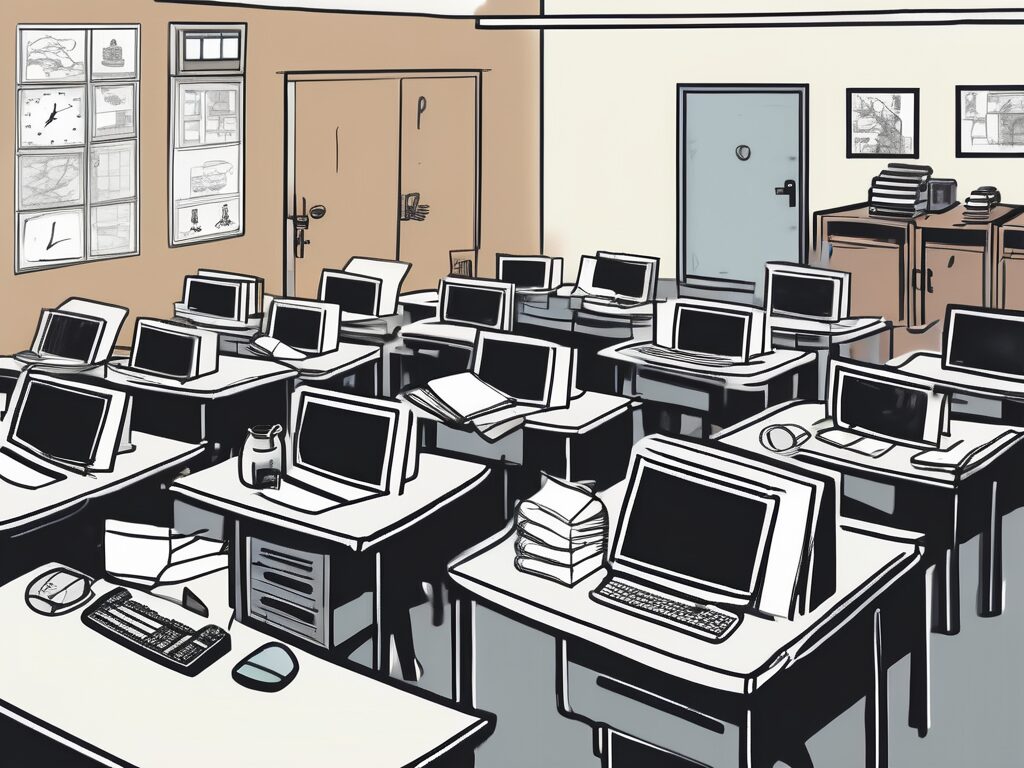Teaching in China can be an exciting and rewarding experience. However, it can also present a unique set of challenges, particularly for those who hold a Master’s degree in Education. This article delves into six common issues that these teachers often encounter, offering insights and potential solutions to help navigate the Chinese educational landscape.
1. Language Barrier
One of the most significant challenges that teachers with a Master’s in Education face in China is the language barrier. While English is taught in schools, it’s not widely spoken outside of the classroom, making day-to-day communication a challenge.
Even in the classroom, language can be a hurdle. While you might be fluent in English, your students might not be. This can make conveying complex concepts difficult, leading to potential misunderstandings.
One way to overcome this is by learning Mandarin. While it’s a challenging language to master, even a basic understanding can make a significant difference. Additionally, using visual aids and interactive teaching methods can help bridge the language gap in the classroom.
2. Cultural Differences
Another common issue is cultural differences. China has a rich and diverse culture that can be vastly different from what you’re used to. This can affect various aspects of teaching, from classroom management to the way students interact with teachers.
For instance, in China, there’s a high level of respect for authority figures, including teachers. This can lead to students being less likely to ask questions or engage in discussions, which can be disconcerting if you’re used to a more interactive classroom environment.
Understanding and respecting these cultural differences is key. It’s also beneficial to adapt your teaching style to fit the cultural context, encouraging students to participate and express their opinions in a way that’s comfortable for them.
3. Teaching Methodologies
China’s education system is often more rigid and exam-focused compared to Western systems. This can be a challenge if you’re used to a more flexible and creative teaching approach.
Teachers with a Master’s in Education are often trained to focus on developing critical thinking skills and fostering a love for learning. However, in China, the emphasis is often on rote memorization and passing exams.
While it’s important to respect the local education system, you can still incorporate your teaching philosophies. For example, you can use interactive activities to make learning more engaging, or incorporate critical thinking exercises into your lessons.
4. Workload and Expectations
Teachers in China often face high workloads and expectations. In addition to teaching, you might be expected to take on additional responsibilities such as grading papers, preparing lessons, and participating in school activities.
Furthermore, parents and school administrators often have high expectations for teachers, particularly those with a Master’s in Education. This can put a lot of pressure on you, leading to stress and burnout.
It’s important to set boundaries and manage your time effectively. Don’t be afraid to ask for help or delegate tasks when necessary. Remember, it’s not just about surviving, but thriving in your role as a teacher.
5. Legal and Visa Issues
Legal and visa issues can also pose challenges for teachers in China. The process of obtaining a work visa can be complex and time-consuming, and you’ll need to ensure you’re always in compliance with local laws and regulations.
Additionally, you’ll need to navigate the intricacies of contracts, housing agreements, and other legal matters. This can be daunting, particularly if you’re not familiar with Chinese law.
It’s advisable to seek legal advice before signing any contracts or making any major decisions. Additionally, staying informed about any changes in visa regulations can help you avoid any potential issues.
6. Professional Development Opportunities
Finally, finding professional development opportunities can be a challenge. While having a Master’s in Education is a significant achievement, continuous learning is essential in the teaching profession.
However, in China, opportunities for professional development can be limited, particularly for foreign teachers. This can make it difficult to stay up-to-date with the latest teaching strategies and methodologies.
One way to overcome this is by seeking out online professional development opportunities. There are numerous online platforms that offer courses and webinars for teachers. Additionally, networking with other educators can provide valuable insights and opportunities for collaboration.
In conclusion, while teaching in China with a Master’s in Education can present challenges, it’s also an opportunity for growth and learning. By understanding these issues and finding ways to overcome them, you can have a successful and rewarding teaching experience in China.
Enhance Your Teaching Career in China with iQTS
Understanding the challenges of teaching in China with a Master’s in Education is just the beginning. Take your next step with The IQTS at UWE’s International Qualified Teacher Status (iQTS) Programme. Designed to support educators like you, the iQTS not only boosts your chances of landing interviews but also significantly enhances your career progression and salary potential. Join a thriving community of professionals, gain a deeper understanding of global education systems, and enjoy the flexibility of balancing professional development with your teaching commitments. Make Your Next Step and transform your teaching experience in China with the iQTS programme.

